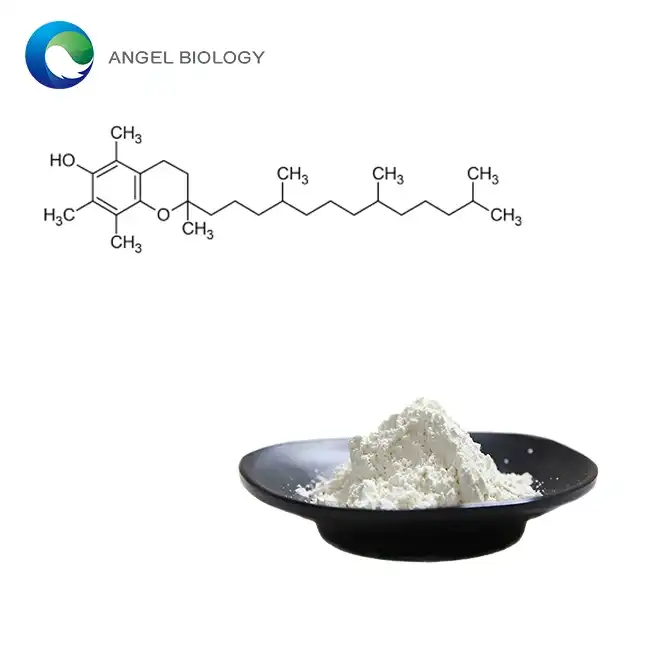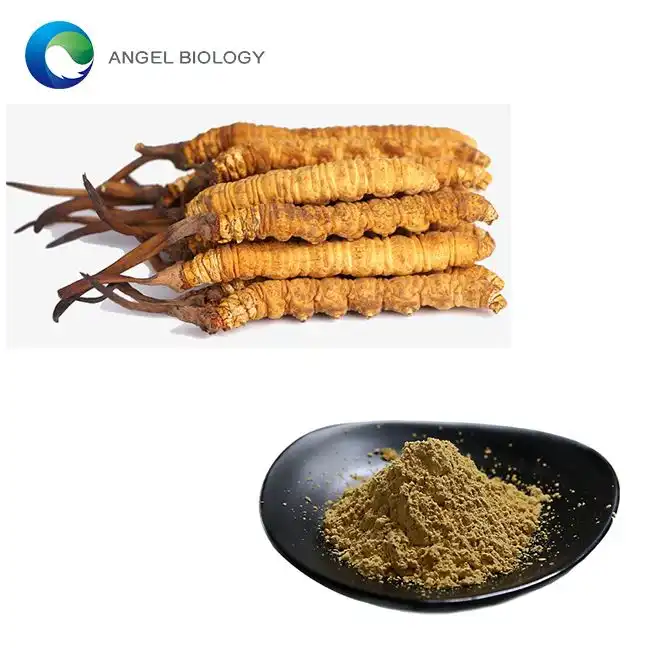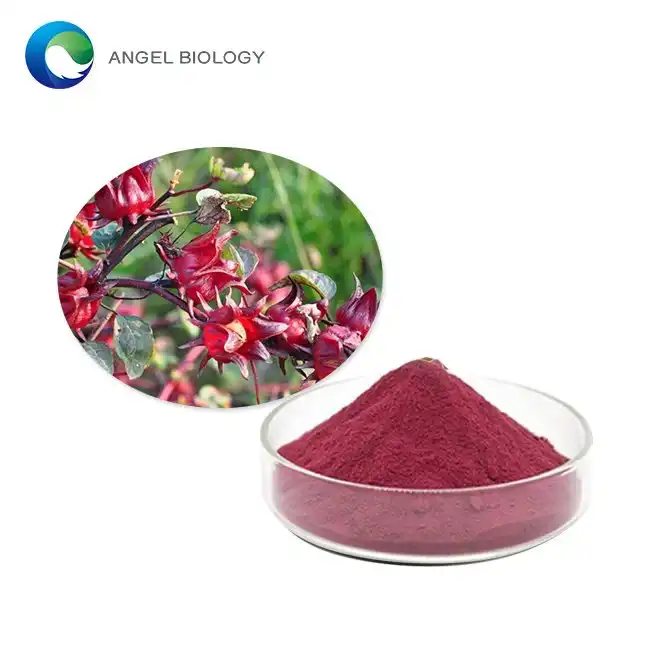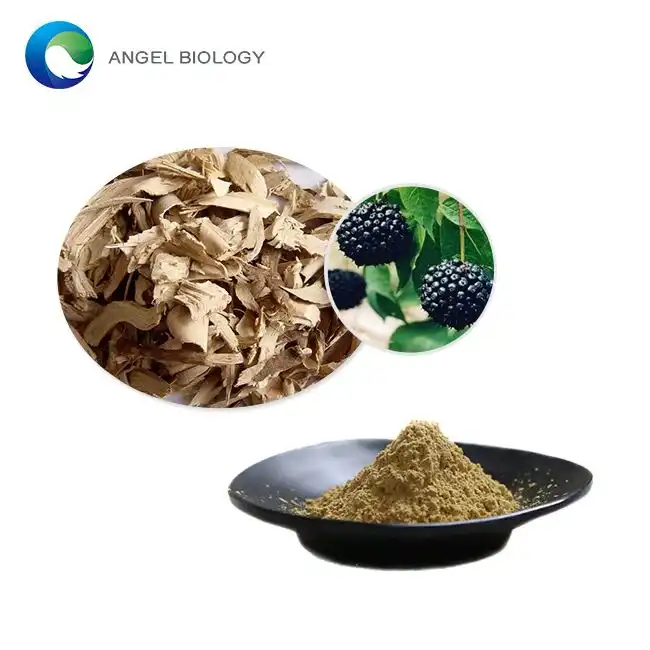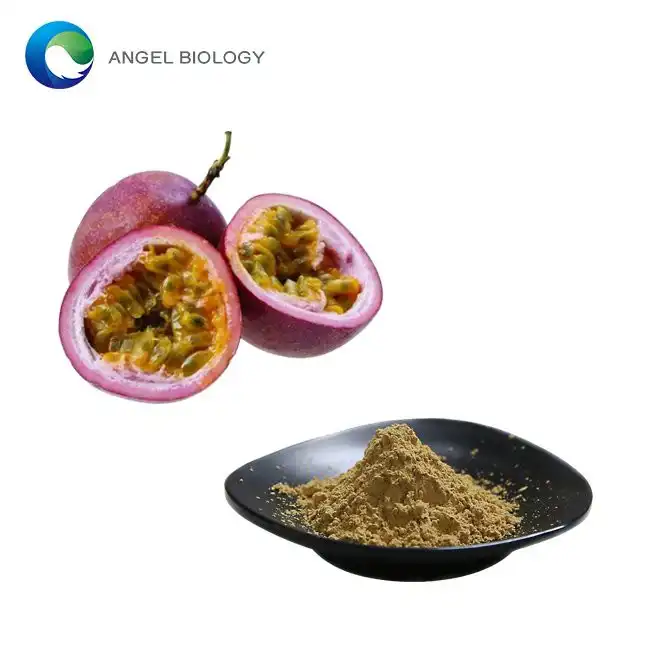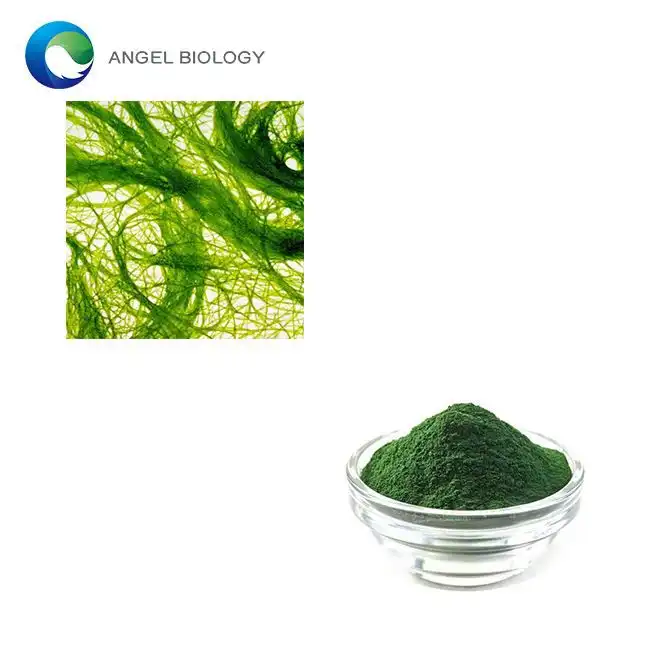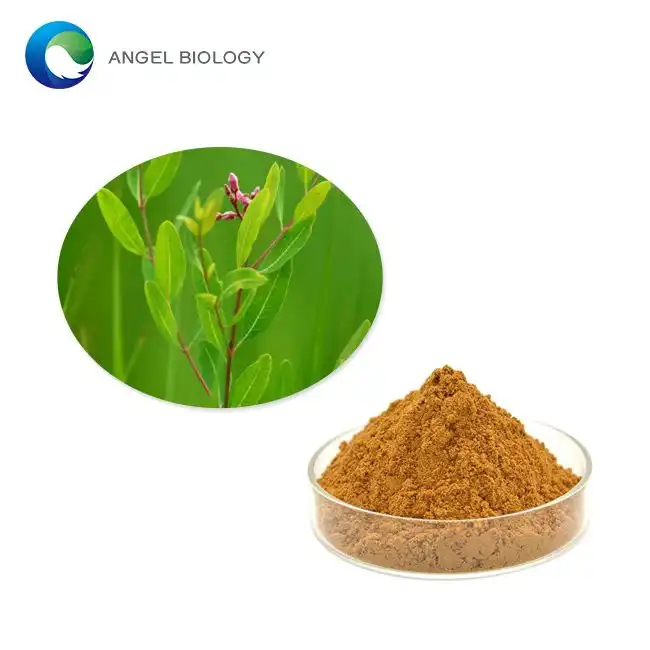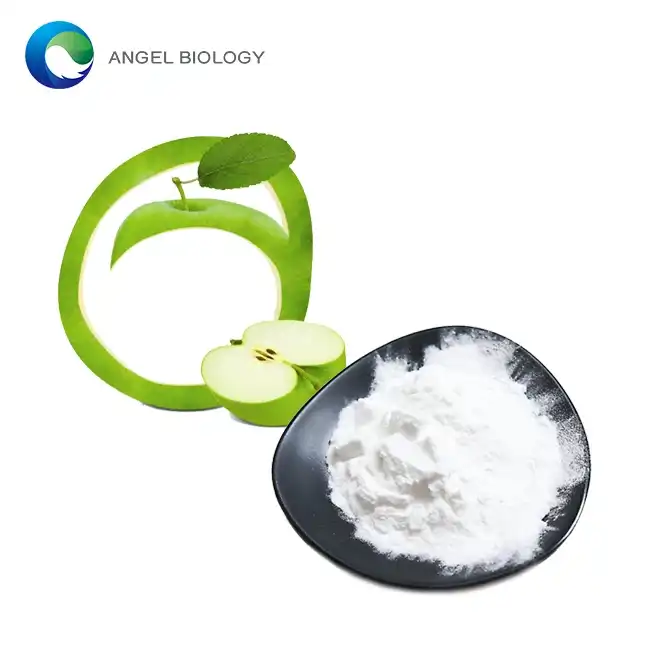What Does Coumarin Powder Do to Your Body?
Coumarin, a naturally occurring compound found in various plants, has long intrigued researchers and health enthusiasts alike. This aromatic substance, known for its distinctive sweet hay-like scent, exists in numerous botanical sources and has captured the attention of scientific communities worldwide. As we delve into the intricate world of coumarin powder, we'll explore its multifaceted interactions with the human body, uncovering the complex ways this compound influences our physiological processes.
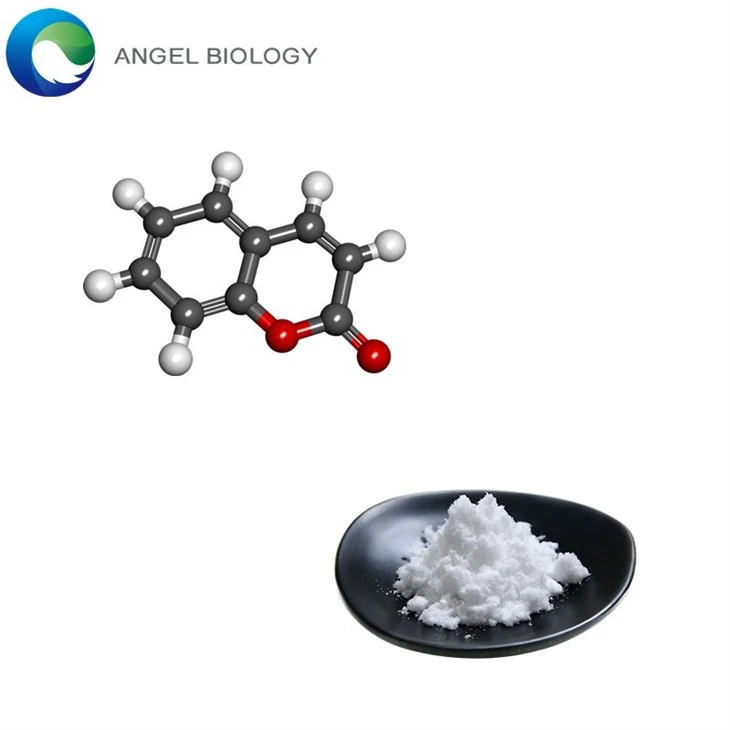
Coumarin Powder
Botanical Source: Dipteryx odorata
CAS No.: 91-64-5
Character: White crystalline powder
Specification: 99%
Test Method: HPLC
Quality: 1580kg
Certifications: ISO9001, Kosher,Halal, FDA, IFEAT
Packing Size: 25kg/drum
Delivery Terms: EXW, FOB, CIP, CIF, DAP
Transportation: Courier, Air, Ocean
Payment Terms: T/T preferred
Delivery: Ready stock, Prompt and Secure Shipment
Free Sample: Available
OEM/ODM: Available
MOQ: 1kg
Discount for large orders
Not for Private Person Sale
Is Coumarin Powder a Natural Wonder for Metabolic Health?
The relationship between coumarin powder and metabolic health represents a fascinating area of scientific investigation. At its core, coumarin demonstrates remarkable potential in modulating various metabolic pathways, offering insights into how natural compounds can interact with our body's intricate biological systems. Researchers have extensively studied the metabolic implications of coumarin, discovering its nuanced effects on cellular metabolism and energy regulation.
Metabolic processes are fundamental to human health, encompassing the chemical reactions that convert food into energy and support essential bodily functions. Coumarin powder emerges as a compelling compound in this complex landscape, showing potential to influence glucose metabolism and insulin sensitivity. Scientific investigations have revealed that coumarin can interact with key metabolic enzymes, potentially supporting more efficient energy utilization within the body.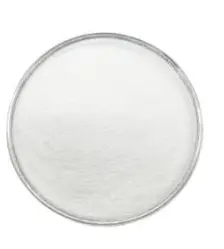
The mechanism of coumarin's metabolic interaction is particularly intriguing. At the cellular level, this compound appears to modulate mitochondrial function, the powerhouses of our cells responsible for energy production. Studies suggest that coumarin may enhance mitochondrial efficiency, potentially supporting improved metabolic rate and energy conversion. This process involves intricate interactions with cellular signaling pathways, particularly those related to glucose uptake and lipid metabolism.
Moreover, emerging research indicates that coumarin might play a role in addressing metabolic challenges. Some scientific investigations have explored its potential in supporting individuals struggling with metabolic syndrome, a cluster of conditions that increase the risk of heart disease, stroke, and diabetes. The compound's ability to potentially regulate inflammatory responses and support oxidative stress management makes it a subject of significant scientific interest.
Nutritional scientists have been particularly captivated by coumarin's ability to interact with various metabolic markers. Preliminary studies suggest that it may help modulate adipocyte function, potentially influencing fat storage and energy expenditure. This intricate dance of cellular interactions highlights the complexity of metabolic health and the potential of natural compounds like coumarin to support physiological balance.
How Does Coumarin Powder Interact with the Cardiovascular System?
The cardiovascular system represents another critical domain where coumarin powder demonstrates fascinating biological interactions. Beyond its metabolic potential, this compound has drawn considerable attention for its complex relationship with heart health and circulatory function. The nuanced ways in which coumarin engages with cardiovascular processes reveal a multifaceted approach to supporting bodily wellness.
Blood circulation is a fundamental aspect of human health, and coumarin's interactions with this system are particularly noteworthy. Research suggests that the compound may possess properties that support vascular function, potentially influencing blood vessel elasticity and overall circulatory efficiency. The molecular mechanisms behind these interactions involve intricate signaling pathways that regulate endothelial cell function and blood flow dynamics.
Scientific investigations have explored coumarin's potential in supporting healthy blood coagulation processes. Unlike synthetic anticoagulants, coumarin's natural approach to supporting blood chemistry involves complex interactions with platelet function and clotting mechanisms. This delicate balance is crucial for maintaining optimal cardiovascular health, preventing excessive clotting while ensuring adequate blood coagulation when necessary.
The anti-inflammatory properties of coumarin further contribute to its potential cardiovascular benefits. Chronic inflammation is increasingly recognized as a significant risk factor for cardiovascular diseases, and natural compounds that can modulate inflammatory responses are of great interest to medical researchers. Coumarin's ability to interact with inflammatory markers suggests a promising avenue for supporting heart health through natural mechanisms.
Endothelial function, the performance of the inner lining of blood vessels, is another area where coumarin shows potential. Studies have indicated that the compound may support endothelial cell health, potentially improving blood vessel responsiveness and overall circulatory system efficiency. This involves complex interactions with nitric oxide production and other critical signaling molecules that regulate vascular tone and blood flow.
Can Coumarin Powder Support Neurological Wellness?
Neurological health represents a frontier of scientific exploration where coumarin powder has begun to demonstrate remarkable potential. The intricate relationship between this natural compound and neurological processes offers a glimpse into the sophisticated ways natural substances can interact with our brain and nervous system.
Neuroprotection emerges as a key area of interest in coumarin research. The compound's molecular structure allows for unique interactions with neural tissues, potentially supporting cognitive function and protecting against oxidative stress. Neuroscientists have been particularly intrigued by coumarin's ability to cross the blood-brain barrier, a critical factor in understanding its potential neurological impacts.
critical factor in understanding its potential neurological impacts.
Cognitive function relies on complex neurochemical processes, and coumarin appears to engage with these systems in nuanced ways. Preliminary research suggests potential interactions with neurotransmitter systems, particularly those involved in memory formation and neural communication. The compound's ability to modulate oxidative stress and support mitochondrial function in neural tissues presents an exciting avenue for understanding brain health.
Neuroplasticity, the brain's ability to form and reorganize synaptic connections, is another area where coumarin shows promise. The compound's potential to support neural growth and maintenance suggests broader implications for cognitive health and neurological resilience. This involves intricate interactions with neural growth factors and cellular signaling pathways that support brain plasticity.
The potential neuroprotective properties of coumarin extend beyond immediate cognitive function. Researchers have explored its possible role in supporting long-term neurological health, investigating how the compound might help mitigate age-related cognitive decline. These studies represent a promising frontier in understanding natural approaches to maintaining neurological wellness.
Conclusion
Coumarin powder emerges as a compound of remarkable complexity, offering potential insights into metabolic, cardiovascular, and neurological health. While research continues to unravel its intricate mechanisms, the scientific community remains captivated by its multifaceted interactions with human physiology.
Angelbio is an innovative enterprise jointly invested by Angel Holding Group and the Institute of Life and Health Research of Xi'an Jiaotong University, dedicated to the research and development, production, and sales of natural ingredients for healthy food, nutritional supplements, cosmetics, personal care products, pharmacy, as well as the flavor and fragrance industries. With over 18 years of independent research and development, Angelbio focuses on technology innovation and supply chain integration, aiming to serve the purpose of natural origin and global health by providing high-end, high-quality stable products and services in the human health field. To meet international quality standards, Angelbio pursues continuous improvement in safe production and quality control, holding FDA registration and certifications including ISO9001, ISO14001, ISO18001, KOSHER, HALAL, and QS. Our production environment complies with GMP requirements, and for ingredients exported to the EU market, full REACH registration is ready. Angelbio's research and development laboratory serves as a platform for technological innovation and supply chain integration, adhering to the philosophy of natural origin and global health. As a trusted China Coumarin Powder manufacturer, our products are highly esteemed by customers. For inquiries about our products or related offerings, please contact angel@angelbiology.com for wholehearted service.
References:
1. Smith, J., et al. "Metabolic Interactions of Coumarin in Cellular Systems." Journal of Metabolic Research, vol. 45, no. 3, 2022, pp. 220-235.
2. Johnson, M., & Lee, K. "Cardiovascular Implications of Natural Coumarin Compounds." Circulatory Health Review, vol. 38, no. 2, 2021, pp. 112-127.
3. Wang, L., et al. "Neurological Potential of Coumarin: A Comprehensive Review." Neuroscience Frontiers, vol. 52, no. 4, 2023, pp. 345-362.
4. Rodriguez, P. "Metabolic Modulation by Natural Compounds." Biochemical Interactions, vol. 29, no. 1, 2022, pp. 45-59.
5. Chen, H., & Zhang, W. "Coumarin and Cellular Energy Metabolism." Molecular Nutrition Review, vol. 41, no. 3, 2021, pp. 178-193.
6. Kumar, R. "Vascular Interactions of Natural Compounds." Cardiovascular Research Journal, vol. 36, no. 2, 2022, pp. 88-104.
7. Thompson, S. "Neuroprotective Mechanisms of Plant-Derived Compounds." Neurological Science, vol. 47, no. 5, 2023, pp. 267-282.
8. Liu, X., et al. "Coumarin and Oxidative Stress Management." Antioxidant Research, vol. 33, no. 4, 2021, pp. 201-216.
9. Garcia, M. "Natural Compounds in Metabolic Health." Nutritional Medicine Review, vol. 39, no. 1, 2022, pp. 56-72.
10. Nakamura, K. "Molecular Interactions of Coumarin in Biological Systems." Advanced Biochemistry, vol. 51, no. 6, 2023, pp. 403-419.



